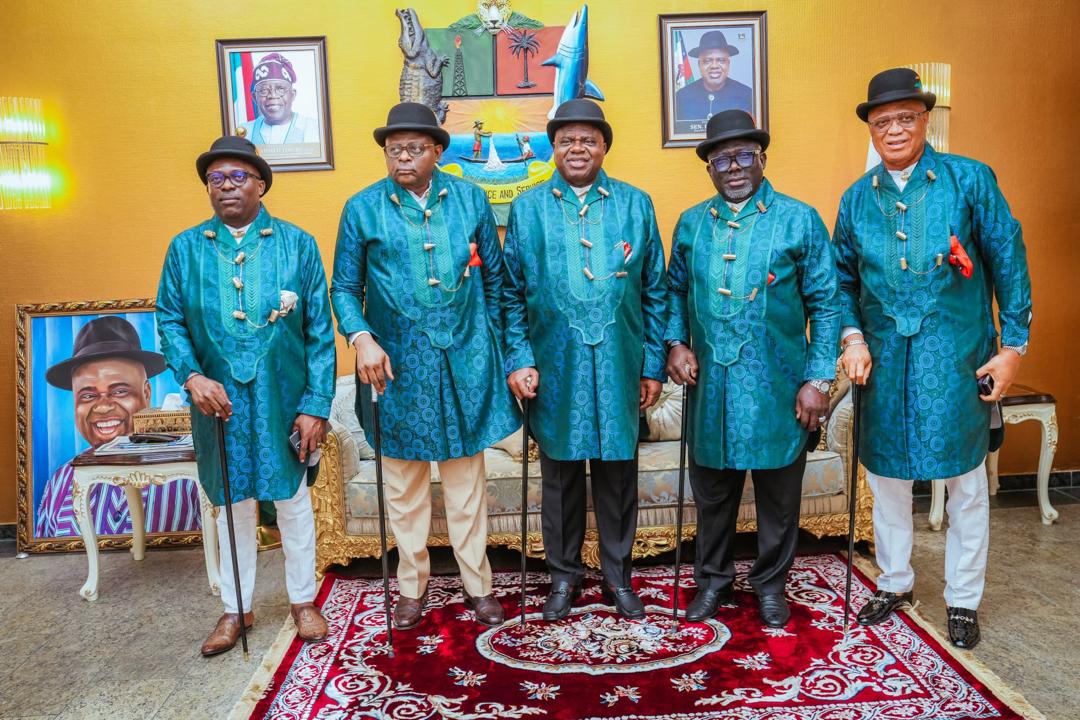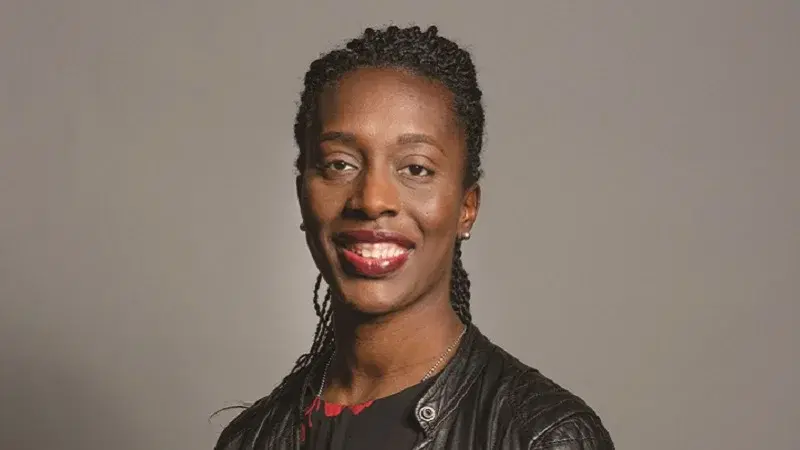News
Wike Signs N470bn Budget Into Law

The Rivers State Governor, Chief Nyesom Wike has signed the N470billion 2017 Appropriation Bill into law after it was passed by the Rivers State House of Assembly, with a pledge to implement it to the letter by making funds available to all tiers of government.
He also assured that the budget implementation will accelerate development in the state.
Giving his assent to the 2017 budget at the weekend in Government House, Port Harcourt, Wike commended the Rivers State House of Assembly for always placing the interest of the people above other considerations.
“You passed the budget on time so that the state government will continue to deliver dividends of democracy to the good people of Rivers State.
“I sincerely thank the state lawmakers for supporting the Executive Arm to provide basic infrastructure to the people of the state”, Wike remarked.
He reiterated the quest by his administration to ensure the diligent implementation of the 2017 budget in line with the tenets of the New Rivers Vision.
Stressing that funds meant for other arms of government will be released as scheduled the governor added ”The Executive Arm of government will continue to cooperate with other arms of the state government to develop the state”.
The governor assured the state lawmakers that his administration will remain focused, despite the undemocratic actions against the Rivers people.
Also speaking, Speaker of the Rivers State House of Assembly, Rt Hon Ikuinyi-Owaji Ibani, lauded Wike for providing the right leadership for the state.
He said that the 2017 budget will intensify the transformation of the state.
He said: “This government means well for the people of Rivers State. We will continue to give the governor the required support for the development of the state”.
The signing of the budget into law was witnessed by the state Deputy Governor, Dr Ipalibo Harry Banigo, the former acting national chairman of PDP, Prince Uche Secondus, Rivers PDP Chairman, Bro Felix Obuah, state lawmakers and members of the State Executive Council.
A breakdown of the 2017 budget indicates that the total projected capital expenditure is N329 billion, representing 70 per cent, while N141billion is proposed for recurrent expenditure.
It would be recalled that the Rivers State Government had last December, presented a budget of N470billion for the 2017 fiscal year to the state House of Assembly for consideration, and passage.
The 2017 budget is christened; “The Golden Jubilee Budget For Accelerated Development.”
News
Let’s Approach Regional Development Issues Differently – Fubara …As S’South Govs Host Fubara To 50th Birthday Celebration

Rivers State Governor, Sir Siminalayi Fubara, has sued for a change in the current approach adopted by South South Governors in their pursuit to achieve holistic regional development and economic prosperity.
The governor insisted on de-emphasis in vested individuals’ political interests while looking at the bigger picture of achieving enduring regional integration that will strengthen unity of purpose to change the trajectory of development in the region.
Fubara made the appeal during the meeting of Governors of South-South States, under the auspices of BRACED Commission, at the Bayelsa State Government House in Yanagoa on Tuesday.
This was contained in a statement by the Chief Press Secretary to the Governor, Nelson Chukwudi.
BRACED is an acronym for Bayelsa, Rivers, Akwa Ibom, Cross River, Edo and Delta.
He said: “I want to appeal that if we have to succeed in this drive, we need to keep our political differences aside and understand that the struggle, as at today, is for posterity, for the development of our region.
“It is really sad that in Niger Delta that is the economic base of this country, the construction of a road that you tagged ‘East-West Road’ could be an issue, that we need to beg, protest, and complain to get it fixed. I don’t think it is proper.”
Governor Fubara stated that it is not that the federal authorities do not understand that Niger Delta needs the road but quickly added that they have seen that even the people of the region do not take themselves seriously.
The governor said the moment Niger Delta people stopped playing to the gallery, and place value on themselves, outsiders will have no option than to accord the region and its people due regard.
Fubara said: “On my part, I want to say this: This is not the first time we are meeting. For me, I followed the course of the region meeting in a forum that we tagged “BRACED Commission.”
“BRACED Commission is also one of the bodies that was constituted at that time to support and work out development strategies for this region. But what I am seeing today is just limiting this meeting to only BRACED COMMISSION.
“We need to widen the scope where other leaders of the region should be part of the discussion of the development of the region, and I think this is the direction that will help the region.”
Reading the Communique of the meeting, the new Chairman of the Forum of Governors of South-South States, and Governor of Bayelsa State, Senator Douye Diri, said they support the Federal Government Tax Reform Bills, and urged President Bola Tinubu to extend the Value Added Tax (VAT) sharing percentages to oil and gas derivation.
He stated the Forum’s request to the Federal Government to urge relevant stakeholders and agencies to extend remediation of polluted environment ongoing in Ogoni land to other impacted communities and States in the region.
Governor Diri also said that the Forum resolved to establish a structural regional security network to enhance safety and security, foster stable Niger Delta region conducive for economic growth and prosperity.
Highlight of the event was the hosting of Governor Fubara to a surprise 50th Birthday celebration by the Governors of South-South States at the Government House in Yenagoa.
News
Fubara Lauds Tinubu For Setting Up Education Load Fund … Vows To Ensure Rivers Benefit Maximally From Scheme

The Rivers State Government has applauded President Ahmed Bola Tinubu for conceiving the idea of setting up the Nigeria Education Loan Fund (NELFUND) which has opened up opportunities for youths to acquire tertiary education irrespective of their financial status.
Rivers State Governor, Sir Siminalayi Fubara, gave the commendation while playing host to a delegation from NELFUND who came on an advocacy visit to the Government House in Port Harcourt on Tuesday.
Represented by his deputy, Prof. Ngozi Nma Odu, Governor Fubara said in developed countries it is common for people to go through school with loans which they sometimes pay all throughout their lives, noting that “for us, it is more accessible and more friendly because you would be required to pay back the loan two years after your National Youth Service.
“It is a win-win situation; it is a situation where the youths in Nigeria should not say because my parents are poor or passed away I cannot improve on my educational growth. This offers them a golden opportunity and I am glad you came for this advocacy.”
The governor urged NELFUND to intensify its advocacy to let the people know how they can benefit from it, adding that it is more important when talking about vocational institutions.
“If you look at the developed countries it is people that went to the vocational schools that make so much money, because it is pricey to get somebody to do anything, we need to instil this into our people, our youths, because people sometimes tend to look down on people that went to vocational schools, it should not be,” he said.
Fubara expressed delight with the NELFUND programme and assured that the State Government would do whatever it can to ensure Rivers State benefits maximally from the scheme.
In his remarks, the Managing Director and Chief Executive of NELFUND, Dr. Akintunde Sawyer, informed the governor that they were in Rivers State to seek the support of the State Government towards the loan, stressing that President Tinubu has directed them to ensure no Nigerian student who has the ability and desire to get educated at tertiary level is denied the opportunity due to lack of funding.
He explained that the scheme provides interest-free loans to students who apply, adding that these loans are not repayable until two years after their Youth Service when they must have gotten a job.
News
UK Appoints British-Nigerian As Trade Envoy To Nigeria

A British-Nigerian politician, Florence Eshalomi, has been appointed as the United Kingdom’s trade envoy to Nigeria.
Her appointment makes Eshalomi the second Nigerian to hold the position.
Confirming her appointment on X on Tuesday, she wrote: “It is an honour to have been appointed as the United Kingdom’s Trade Envoy to Nigeria.
“I’m looking forward to building on my close ties with Nigeria to promote a strong and flourishing economic relationship between our two great nations.
“I am looking forward to strengthening the UK’s relationship with Nigeria to explore shared growth and opportunities for both countries.”
Announcing the appointment in a statement on Tuesday, Jonathan Reynolds, the UK’s Business and Trade Secretary, said the decision was aimed at attracting investment into the UK and boosting economic growth.
“I’ve launched a new team of trade envoys who will use their experience, expertise, and knowledge to unlock new markets around the world for British businesses, attract investment into the UK, and ultimately drive economic growth,” Reynolds said.
Eshalomi, 44, is an MP representing the Vauxhall and Camberwell Green constituency.
She holds a Bachelor of Arts (Hons) in Political and International Studies with Law from Middlesex University.
-
Rivers4 days ago
Bonny Protest Neglect, Seeks CSR MoU Implementation
-
Politics2 days ago
Presidency, APC React As El-Rufai Criticises Party, Urges United Opposition
-

 Niger Delta2 days ago
Niger Delta2 days agoNDDC’s Performance, Boost To Tinubu’s Government – Coalition
-
Niger Delta4 days ago
Edo Confirms 8 Lassa Fever Deaths, 56 Cases
-
Politics2 days ago
Same Faith Ticket, CAN Yet To Decide For 2027
-

 Business2 days ago
Business2 days agoUBA To Educate SMEs, Business Owners On Withholding Tax
-
Business4 days ago
FG Seeks partnership With World Economic Forum On Gas Pipeline Project
-
Business2 days ago
Data Privacy Ecosystem Can Drive Trillion Dollar Economy – NDPC

